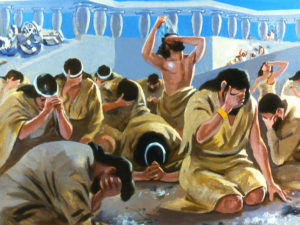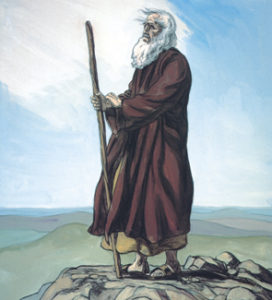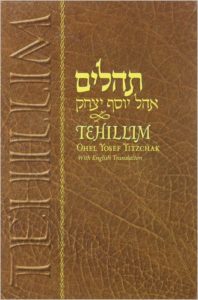Special Edition: Comments From Readers & V’Zois Habrocho 2016
by devadmin | October 22, 2016 10:35 pm
 SPECIAL EDITION: COMMENTS FROM READERS + PARSHAS V’ZOIS HABROCHO
SPECIAL EDITION: COMMENTS FROM READERS + PARSHAS V’ZOIS HABROCHO
Raboyseyee and Ladies:
We begin with Happy Anniversary (third) wishes, this past Thursday, October 20th, from the Oisvorfer and eishes chayil to our children Ariella and Zachary Grossman. May they continue to enjoy only marital bliss.
A special shout out to the Oisvorfer’s chaver and yidid nefesh (more than trusted friend), the always reliable Dovi Wachsler. Yashar Koiach!
May You Live to 120!
Ever since the Oisvorfer learned how to use a pen -efsher before- he was told by his parents and later his rebbes, that a proper salutation when addressing a letter to anyone, was to include the Hebrew letters of -ayin-mem-vov-shin (an acrostic for the words ‘ad meah v’esrim). In English: the words translate to ‘until 120 years old.’ And what they mean is that we wish the person being addressed in our correspondence, long life, until 120 years old. We use the Yiddish expression ‘biz hindred un tzvuntzig’ (until 120) regularly in our daily speech. We use it often. We especially invoke it when wishing someone a happy birthday. With it we convey our warm feelings towards the individual being addressed or being discussed. 120 seems to be the magic number of years we wish upon those we like. As to those we loathe, we often -in our hearts anyway- wish for them to drop dead. Avada, few verbalize these dastardly thoughts lest they be considered heartless.
 Ober, are we violating the heylige Toirah by writing or speaking these few words? Are we in fact cursing them by wishing them to live only until 120? Perhaps they could have lived longer, ver veyst? And the questions are azoy. Why do we say this? Why was 120 selected as the cutoff for the years we wish upon those we like? Is it appropriate to state these words, or reduce them to writing? Is wishing someone to live but until 120 at all controversial? Why not longer? And what has all this to do with very last parsha in the heylige Toirah. We will address these questions shortly.
Ober, are we violating the heylige Toirah by writing or speaking these few words? Are we in fact cursing them by wishing them to live only until 120? Perhaps they could have lived longer, ver veyst? And the questions are azoy. Why do we say this? Why was 120 selected as the cutoff for the years we wish upon those we like? Is it appropriate to state these words, or reduce them to writing? Is wishing someone to live but until 120 at all controversial? Why not longer? And what has all this to do with very last parsha in the heylige Toirah. We will address these questions shortly.
Interestingly enough, here we are in year seven -OMG- of weekly parsha reviews and not once has the Oisvorfer written about parshas V’zois Habrocho, the very last parsha in the heylige Toirah. What’s taka pshat? Why indeed was this parsha left out, and how is that shayich (possible)? Did the Oisvorfer have nothing to say? Not one chap? Ober the answer is azoy. Avada you know or should, that it’s only on Simchas Toirah, a one day holiday we will celebrate next Tuesday (Monday over in Israel), when this parsha (V’zois Habrocho) is read in its entirety. That’s how our sages arranged the annual cycle of Toirah readings. It does not get its own shabbis. It’s not even coupled with a sister parsha. We complete the Toirah with the reading of V’zois Habrocho on this holiday, always on a weekday, and immediately begin all over again. Toirah characters we said goodbye and au-revoir to last year, will come back to life as we study and write about them.
 Ober, while enjoying Indian summer over Yom Tov in the Sukkah, an issue arose. One that is mamish rooted in V’zois Habrocho, as well as, in parshas Bereishis (Genesis), which, as mentioned above, we also begin reading on Simchas Toirah. The issue gave rise to some spirited discussion, and inspired the Oisvorfer to set aside his very busy chol-hamoid schedule and instead focus on a new shtikel Toirah. And again we ask azoy? Are we blessing someone or perhaps cursing them, or efsher worse, violating a loi-sah-say (thou shall not do) in the heylige Toirah by wishing them long life, but only until 120? Is that even a kasha? Nu, said one fellow azoy: we may indeed be violating the commandment of not cursing a deaf person, a thou shall not do found in parshas Kedoishim (expanded by our sages to include all other Yiddin) when wishing them life until 120. He went so far as reaching out to a great rabbi over in Israel seeking advice on the subject. As a result, he taka never wishes, in person or reduces to writing, the ‘ad meoh v’esrim (may you live until 120) expression. He claims that many informed Jews do the same. Left unsaid but hinted to mockingly, is that the great majority of Yiddin who continue to bless people with long life until 120, are ill-informed. We will address this mamish explosive topic below, ober…
Ober, while enjoying Indian summer over Yom Tov in the Sukkah, an issue arose. One that is mamish rooted in V’zois Habrocho, as well as, in parshas Bereishis (Genesis), which, as mentioned above, we also begin reading on Simchas Toirah. The issue gave rise to some spirited discussion, and inspired the Oisvorfer to set aside his very busy chol-hamoid schedule and instead focus on a new shtikel Toirah. And again we ask azoy? Are we blessing someone or perhaps cursing them, or efsher worse, violating a loi-sah-say (thou shall not do) in the heylige Toirah by wishing them long life, but only until 120? Is that even a kasha? Nu, said one fellow azoy: we may indeed be violating the commandment of not cursing a deaf person, a thou shall not do found in parshas Kedoishim (expanded by our sages to include all other Yiddin) when wishing them life until 120. He went so far as reaching out to a great rabbi over in Israel seeking advice on the subject. As a result, he taka never wishes, in person or reduces to writing, the ‘ad meoh v’esrim (may you live until 120) expression. He claims that many informed Jews do the same. Left unsaid but hinted to mockingly, is that the great majority of Yiddin who continue to bless people with long life until 120, are ill-informed. We will address this mamish explosive topic below, ober…
We begin (again) this special edition with a few comments received in the past week.
Thilde Peterson from Los Angeles wrote:
Un Sucot generosa a mi rabino preferido! Te amo y amo este d??a de fiesta. Gracias por los mensajes maravillosos. que son el calentamiento del coraz??n!
by Thilde Peterson
translated:
A bountiful Sukkot to my favorite Rabbi! I love you and I love this Holiday. Thank you for the WONDERFUL posts. they are heart warming!
Marvin Handelman from Dallas, TX wrote:
Dear Oisvorfer Ruv, the weekly Torah studies would not be the same without you over the last several years. Thank you so much for everything! As the holiday of Succos approaches and we prepare to celebrate and dance with the Torahs, we will be thinking of you with a full heart. Thank you.
Chag sameach and may this New Year bring you good health, happiness, and peace.
Marvin Handelman
Ober we shall focus on what reader and seemingly ardent oisvorf follower Adam Stein (may he be blessed with long years, to at least until 120), out of Miami, who wrote azoy:
Dear Oisvorfer!!
I have been reading for many years, truly a pleasure each week, and I know you put your heart and soul into these words. I feel like you are one of the most sincere and “relatable” people I know, which is why I’d like to ask this question of you, most of the rabbi’s I tried asking simply tell me to stop asking nonsense..
in Yom Kippur’s haftarah, where we read about Jonah, he goes to that city, Nineveh and is told to warn the people to change their ways or the city will be destroyed. Then it says “people of Nineveh feared God and they listened” but if they feared God and were such God-fearing population, why were they about to be destroyed, like Gomorrah? In Gomorrah everyone was immoral and so it made sense. Here people seemingly were good and they did listen, as they believed in God, so how could they have been deserving of the capital punishment?!
Truly looking forward to your response! we all love you!!!!
Adam Stein
Nu chaver Adam, your comments and kasha are mamish givaldig. I can see that not just did you arrive to shul timely for the Yom Kippur Mincha services, you also mamish spent time reading and following the rather lengthy story of Yoina (Jonah) and the famous fish which swallowed him up before spitting him out after three days and three nights. Grada this was quite unusual because ershtens those checking in for lodging, typically get the 3 day and 2 nights special. Moreover, most Yiddin, even those lucky to be swallowed, if you chap, are typically spit out after but minutes. Shoin! Adam, you were michavin (channeled) a few others who were similarly vexed by your question. Let’ s add one more question: Was the fish which swallowed Yoinah male or female? We will get to that shortly, ober let’s first address Adam’s question by exploring a few potential answers. Pick the one that talks to you.
 1- It never happened: You can relax. It what? Shoin, believe it or not, there is at least one source (though the Oisvorfer cannot quote it this very moment), who tells us that the entire myseh of Yoina getting the call from the RBSO to travel to Ninvay and the ensuing events, including his tribulations on the high seas, his experiences while residing in the belly of the fish, were nothing more than a dream he had. Let’s not forget that the RBSO only appeared to Prophets and others with whom, or through whom, He wished to communicate, in night visions, dreams. Only with Moishe, who passes away on his birthday at the ripe old age of 120 -of course- in this week’s parsha, did the RBSO have direct conversations. Shoin, if you ascribe to this pshat, the entire myseh sounds somewhat fishy. Indeed, a cheap pun; will try harder as we move along. It does however negate Adam’s question. On the other hand, that is but one opinion. Many people may taka believe it to be emes, ober just as many are also afraid to verbalize their real thoughts lest they be thrown to the sharks.
1- It never happened: You can relax. It what? Shoin, believe it or not, there is at least one source (though the Oisvorfer cannot quote it this very moment), who tells us that the entire myseh of Yoina getting the call from the RBSO to travel to Ninvay and the ensuing events, including his tribulations on the high seas, his experiences while residing in the belly of the fish, were nothing more than a dream he had. Let’s not forget that the RBSO only appeared to Prophets and others with whom, or through whom, He wished to communicate, in night visions, dreams. Only with Moishe, who passes away on his birthday at the ripe old age of 120 -of course- in this week’s parsha, did the RBSO have direct conversations. Shoin, if you ascribe to this pshat, the entire myseh sounds somewhat fishy. Indeed, a cheap pun; will try harder as we move along. It does however negate Adam’s question. On the other hand, that is but one opinion. Many people may taka believe it to be emes, ober just as many are also afraid to verbalize their real thoughts lest they be thrown to the sharks.
2- Ober, there are other opinions and a logical one belongs to this fellow known as the RADAK. To chap what he said and how he understood this whale of a story, let’s go back and chazir (review) the first and second verses of the story. The RBSO sent Yoinah to Ninvay. His mission: to warn the people of that city to repent lest they be doomed, destroyed mamish. Says the text: ‘ki olso ro’oh’som lifonei (for their wickedness has ascended before me). Ober, before we address Adam’s kasha, efsher we need to ask azoy: why taka was the RBSO concerned with the sinfulness of the Ninvinites? Why did the RBSO send His Prophet Yoinah, as His messenger, to forewarn a bunch of goyim of the consequences of their bad behavior, their wickedness? Aren’t we His Chosen People? Weren’t the prophets, those of both doom and consolation, charged with delivering messages from the RBSO about the Yiddin? What was so unique about the Ninvinites? Why did they even register on the RBSO’s radar?
Nu, says the Radak azoy: the sin of the Ninvinites lay in the area of ‘chomos’ (robbery and oppression.) And where else have we seen this word ‘chomos?’ Nu, coming soon to a shul near you and everywhere else, is the givaldige story of Noiach (Noah) and the ‘doir hamabul’ (generation of the flood). There we will find the RBSO telling Noiach of His plans to destroy the entire world. Why? “Ki molay ho’oretz chmos” (because the world was filled with ‘chomos’, robbery). As an aside, the very next Rashi will further expand what the ‘chomos’ entailed. Such ‘chomos’ included many forms of sexual depravity among the people. And not just the people; the animals too were involved in sexual chicanery. Sheep may have been having illicit sexual relations with fish. The cats and the mice were making nice, if you chap. Whatever it was that went down between the people, the animals and between animals and the people, was seemingly quite giferlich.
In the book of Yoina, we will come across these words….”u’min ‘he’chomos’ asher b’chapayhem” (and from the robbery that is in their hands). Exactly what they were doing with their hands, ver veyst, but if it’s anything like what took place back in the Noiach’s time or Avrohom’s over in Sedoim (Sodom), it wasn’t good. In any event, this type of behavior on the part of the Ninvinites was considered destructive. In other words: on some level, the behavior of the Ninvinites resembled what took place generations earlier over in Sedoim. Unlike the Sodomites who were doomed and could not be saved, the RBSO decided to give the Ninvinites a second chance and sent Yoina to right the ship, so to speak. Seemingly, the people over in Ninvay were not as giferlich as the Sodomites. Though their behavior was also destructive to the social order, it did not rise to the levels of the Sodomites and the generation of the flood. Therefore, in order to preserve these ‘not quite as bad folks,’ the RBSO intervened.
3- Says the Ibn Ezra that Yoinah was sent to warn the people of Ninvay davka because the sins of the Ninvinites did not involve avoido zoro (idolatry). They were guilty, but only of sins involving social order. Therefore, the RBSO decided that these people had it within them to repent and sent Yoina to afford them the great opportunity of repentance. And taka, as the text tells us, they did so immediately. In other words, and as the Oisvorfer has told you over and again: the RBSO has in the past looked aside and forgiven many sins so long as they don’t involve avoido zoro. That one mamish upsets Him and there is no coming back. The RBSO is by His own words, a jealous God. Of course, oisvorfs should not take this as a license to roam about the cabin and try emulating the ways of the Ninvinites. In the end, we can kler azoy: Yoina’s mission was intended to teach the Yiddin of his generation (and later ones) that tshuva works, even for oisvorfs and much worse. It’s seemingly never too late.
 The story of Yoina has inspired many a colorful medrish and we shall revisit with him and them next year when he surfaces. Here are a few just to whet your appetite. Which are emes and which are but fable, ver veyst? Says the Pirkei D’ Rebbe Eliezer azoy: the fish which swallowed Yoina had been created by the RBSO during the first six days of creation. This fish was created on day 5 along with the sea creatures, fish and sea monsters as described in the heylige Toirah (Bereishis). It’s sole mission was to swallow Yoina during his time. Shoin, let’s quickly mention one or two more; we will cover Yoina again bi’a’rcihus (in depth) next year. The fish was given a large mouth and throat, facilitating easy entry and passage for Yoina into its belly. And taka when it comes to swallowing, a large mouth and throat can be helpful, if you chap. Another medrish tells us that it had eyes as large as windows and lamps that lit up its interior. And since, according to the medrish, Yoina aborted his mission and ran away also on the 5th day of the week, Thursday, it’s likely that he spent shabbis inside the belly of the fish. We can therefore kler that Yoina was the beneficiary of the first ever Kosher Lamp, why not? Would he have turned on the lamps on shabbis? Of course not! In any event, given the comforts inside the fish, Yoina was quite relaxed. So much so, he neglected to daven to the RBSO to save him. What did the RBSO do next?
The story of Yoina has inspired many a colorful medrish and we shall revisit with him and them next year when he surfaces. Here are a few just to whet your appetite. Which are emes and which are but fable, ver veyst? Says the Pirkei D’ Rebbe Eliezer azoy: the fish which swallowed Yoina had been created by the RBSO during the first six days of creation. This fish was created on day 5 along with the sea creatures, fish and sea monsters as described in the heylige Toirah (Bereishis). It’s sole mission was to swallow Yoina during his time. Shoin, let’s quickly mention one or two more; we will cover Yoina again bi’a’rcihus (in depth) next year. The fish was given a large mouth and throat, facilitating easy entry and passage for Yoina into its belly. And taka when it comes to swallowing, a large mouth and throat can be helpful, if you chap. Another medrish tells us that it had eyes as large as windows and lamps that lit up its interior. And since, according to the medrish, Yoina aborted his mission and ran away also on the 5th day of the week, Thursday, it’s likely that he spent shabbis inside the belly of the fish. We can therefore kler that Yoina was the beneficiary of the first ever Kosher Lamp, why not? Would he have turned on the lamps on shabbis? Of course not! In any event, given the comforts inside the fish, Yoina was quite relaxed. So much so, he neglected to daven to the RBSO to save him. What did the RBSO do next?
Shoin, after spending three days and three nights in the belly of the fish, the RBSO decided that Yoina was taka too comfortable. A pregnant (seemingly with more than one fish fetus) approached the male fish. She threatened to devour and swallow up the male unless Yoina was immediately transferred from the belly of the male fish into hers. She stated that she was acting under divine orders from the RBSO. Next: Yoina was ejected from the belly of the male fish and suddenly found himself sharing the belly of a very pregnant female fish. There he wasn’t as comfortable. Shoin, males don’t typically enjoy overstaying their welcomes, if you chap. At this point, Yoina began to daven and repented to the RBSO for having run away from his mission to save the Ninvinites. The bottom line: Yoina, initially swallowed by a male fish, was ejected twice. The final ejection was from the female fish.
 Grada, just yesterday, the Oisvorfer was discussing Yoina with one of the umois ho’oilom (a gentile) and asked him two questions. 1- Does he believe the story of Jonah was real? If yes, what type of fish was it that swallowed Yoina? Grada he’s very devout and stated that absolutely the story is real and emes. As an avid fisherman and maybe even a shtikel marine biologist, he also believes that Yoina was swallowed by a sperm whale. He then explained that the sperm whale has a mouth large enough to swallow a person as he is, and also has more than sufficient interior capacity. A person can indeed survive inside for a short period of time. Shoin, now we can chap why the female fish wanted to then swallow the male and had her eyes on Yoina. Emes? Logical? Ver veyst? Not any more out of the box, perhaps way less, than other medroshim on Yoina. Hard to believe? Nu, the RBSO has a hard time believing some of your excuses for poor behavior, yet He gives you yearly passes. Get with the program; go with it! As an aside, Rashi, and who knew more, also mentions this medrish. Still hard to believe? The rest of the story isn’t?
Grada, just yesterday, the Oisvorfer was discussing Yoina with one of the umois ho’oilom (a gentile) and asked him two questions. 1- Does he believe the story of Jonah was real? If yes, what type of fish was it that swallowed Yoina? Grada he’s very devout and stated that absolutely the story is real and emes. As an avid fisherman and maybe even a shtikel marine biologist, he also believes that Yoina was swallowed by a sperm whale. He then explained that the sperm whale has a mouth large enough to swallow a person as he is, and also has more than sufficient interior capacity. A person can indeed survive inside for a short period of time. Shoin, now we can chap why the female fish wanted to then swallow the male and had her eyes on Yoina. Emes? Logical? Ver veyst? Not any more out of the box, perhaps way less, than other medroshim on Yoina. Hard to believe? Nu, the RBSO has a hard time believing some of your excuses for poor behavior, yet He gives you yearly passes. Get with the program; go with it! As an aside, Rashi, and who knew more, also mentions this medrish. Still hard to believe? The rest of the story isn’t?
Adam, there are many more medroshim on Yoina and his experiences within the belly of the fish. A few have inspired books and movies. Which of these really took place, ver veyst? Keep on following and thank you for your comment.
Nu, where were we? Yes, we were discussing whether or not wishing someone to live until 120 is a blessing or a curse. Let’s begin with this possik (Devorim 34:7) found towards the very end of Vzois Habrocho, which the Oisvorfer reminds you will be read this coming Tuesday (ONLY) here in golus (Diaspora): “Moishe was one hundred and twenty years old when he died.” And to help us along, let’s either turn back the clock to parshas Bereishis, or, move forward one more week to the same parsha and to one more posik where we read (Bereishis 6:3) azoy: “And Hashem said, Let My spirit not quarrel evermore concerning man, because he is also flesh, and his days shall be a hundred and twenty years.” In fact, let’s also look at the two preceding pesukim, efsher they will help us chap what was going on back then.
| 1. And it came to pass when man commenced to multiply upon the face of the earth, and daughters were born to them. | אוַיְהִי כִּי הֵחֵל הָאָדָם לָרֹב עַל פְּנֵי הָאֲדָמָה וּבָנוֹת יֻלְּדוּ לָהֶם: | |
|
2. That the sons of the nobles saw the daughters of man when they were beautifying themselves, and they took for themselves wives from whomever they chose. |
בוַיִּרְאוּ בְנֵי הָאֱלֹהִים אֶת בְּנוֹת הָאָדָם כִּי טֹבֹת הֵנָּה וַיִּקְחוּ לָהֶם נָשִׁים מִכֹּל אֲשֶׁר בָּחָרוּ: |
Specifically what was bothering the RBSO about His creations taking women from ‘whomever they chose’ is not fully or even partially explained in the heylige Toirah. We can however surmise that given the proximity of the two pisukim leading up to the decree that ‘his days shall be one hundred and twenty’, they must epes related. Moreover, the very next verse tells us that the Niphilim were on the earth in those days. Nu, something nefarious must have been going on between men and women that really upset the RBSO. But who will tell us for sure? Rashi, who else? Said he azoy: men were taka ‘taking’ women ober the woman were seemingly married to other men at the time. Yikes! Not much has changed. Rashi also tells us that men were taking, if you chap, animals. In other words, depravity ruled. Is it a wonder the RBSO decided to wipe out the world and start over again? Not!
Ober, growing up, many (including the Oisvorfer himself) were taught, and believed mamish, that the words ‘his days shall be one hundred and twenty’ were the basis of man’s lifespan being limited to 120 years. Which taka made some sense because leading up to the decree, people like Odom Horishoin, Noiach and others all lived over 900 years. Let’s not forgot to shout-out Misushelach (Methuselah), he having lived 969 years. Ober in generation to follow, life spans were dramatically reduced and by the time our forefathers took center stage, they each lived under 200 years. Finally, at the very end of the heylige Toirah we read that Moishe passed at 120.
 Over in the Sukkah where the discussion raged as to whether or not we should wish someone ‘ad meoh v’esrim’ (life until 120), it was decided to again consult Rashi, who else, and guess what? A very different picture emerged. Says Rashi and (seemingly, so also say many if not most other commentators), that the 120 years of man’s life as stated by the RBSO in Bereishis, refer not to his individual lifespan. What then was the RBSO referring to? Seemingly to the 120 years the RBSO was allotting for the ‘doir hamabul (generation of the flood) to do tshuva. And taka tshuva is just what they needed if Rashi is correct and men were busy chapping what was not theirs. The decree then was directly related to what was going on between men and woman. Nu, as to why the RBSO gave these men and women 120 years to repent, ver veyst? Mistama He chapped that they were so steeped in whatever perversions and predilections were stimulating them, that they efsher needed time to withdraw, if you chap, and detox from their intoxicating behavior. Whatever: 120 years was a very long leash and more than enough time to party hearty. Avada we recall that 120 years was seemingly still not enough time: they did in fact not repent and the world was destroyed. Many blame Noiach for not being more persuasive during the 120 year grace period (free-for all) about the coming flood and their need to repent. We shall discuss this topic more biarichus (in depth) and the job Noiach did or didn’t do as his parsha comes along. Surprisingly Rashi does not even mention as a second or alternate pshat, the 120 year decree as possibly referring to lifespan. In other words: 120 years was strictly mabul related.
Over in the Sukkah where the discussion raged as to whether or not we should wish someone ‘ad meoh v’esrim’ (life until 120), it was decided to again consult Rashi, who else, and guess what? A very different picture emerged. Says Rashi and (seemingly, so also say many if not most other commentators), that the 120 years of man’s life as stated by the RBSO in Bereishis, refer not to his individual lifespan. What then was the RBSO referring to? Seemingly to the 120 years the RBSO was allotting for the ‘doir hamabul (generation of the flood) to do tshuva. And taka tshuva is just what they needed if Rashi is correct and men were busy chapping what was not theirs. The decree then was directly related to what was going on between men and woman. Nu, as to why the RBSO gave these men and women 120 years to repent, ver veyst? Mistama He chapped that they were so steeped in whatever perversions and predilections were stimulating them, that they efsher needed time to withdraw, if you chap, and detox from their intoxicating behavior. Whatever: 120 years was a very long leash and more than enough time to party hearty. Avada we recall that 120 years was seemingly still not enough time: they did in fact not repent and the world was destroyed. Many blame Noiach for not being more persuasive during the 120 year grace period (free-for all) about the coming flood and their need to repent. We shall discuss this topic more biarichus (in depth) and the job Noiach did or didn’t do as his parsha comes along. Surprisingly Rashi does not even mention as a second or alternate pshat, the 120 year decree as possibly referring to lifespan. In other words: 120 years was strictly mabul related.
 Oib azoy (that being the case), where is the source for man being limited to 120 years of life? Is there a source? And if there is no source, who says man can’t live longer? And before we sew this all up, let’s also recall the words of Dovid Hamelech, who besides being king of the Yiddin and besides having a slew of wives, including of course Batsheva, whom he spotted and summoned while she was still married to Uria the Chiti, introduced a shorter lifespan for man, in the book of Tihilim (Book of Psalms) which he authored. Nu, considering all that the accomplished, especially in the boudoir, if you chap, which he did, it was taka only appropriate for him to compose the sefer of Tihilim (Psalms). In any event, in Psalm 90 shteyt azoy (we find written): ” The days of our years among them are seventy years, and if with strength, eighty years.”
Oib azoy (that being the case), where is the source for man being limited to 120 years of life? Is there a source? And if there is no source, who says man can’t live longer? And before we sew this all up, let’s also recall the words of Dovid Hamelech, who besides being king of the Yiddin and besides having a slew of wives, including of course Batsheva, whom he spotted and summoned while she was still married to Uria the Chiti, introduced a shorter lifespan for man, in the book of Tihilim (Book of Psalms) which he authored. Nu, considering all that the accomplished, especially in the boudoir, if you chap, which he did, it was taka only appropriate for him to compose the sefer of Tihilim (Psalms). In any event, in Psalm 90 shteyt azoy (we find written): ” The days of our years among them are seventy years, and if with strength, eighty years.”
Ober, did King David mamish write these words? Maybe not! Some say (Rabaynu Art Scroll) that Dovid drew upon the works of ten different psalmists – including Moishe himself- as he composed this particular chapter of Tihilim. Says the Radak azoy: Dovid came across an ancient scroll written by Moishe which contained eleven psalms (90-100). In other words: Dovid did not state the man’s years are set at seventy, Moishe did. So happens that Dovid did pass away at 70 ober how he got to live until 70 is the subject of another medrish which involved Odom (Adam), which we will efsher delve into next week. Why Moishe would write that man’s years are set at seventy when his own brother and sister, both older than he, passed away at 123 and 126, ver veyst.
Shoin, how long can man live? How long was he supposed to live? How old is the oldest man or woman on record? What the hec is going on? How is that in the days of Odom and Noaich man lived until 970 years but by the time the heylige Ovis came along, man’s years were reduced to under 200 and by the time of Moishe’s generation, 120 was the cutoff? And what of Dovid’s words about a lifespan of 70? Yikes, it’s mamish so confusing.
 Moreover, grada just last week, The Jewish Home, a very decent local 5Towns publication carried a shtikel news brief which told us that “The longest documented lifespan in history was that of Jeanne Calment. The upbeat French woman died in 1997 at the age of 122.” How does reconcile with the mostly orthodox view that man is to live only until 120?
Moreover, grada just last week, The Jewish Home, a very decent local 5Towns publication carried a shtikel news brief which told us that “The longest documented lifespan in history was that of Jeanne Calment. The upbeat French woman died in 1997 at the age of 122.” How does reconcile with the mostly orthodox view that man is to live only until 120?
Veyter: So happens that the Ibn Ezra tells us that there are taka those who understand the words of ‘up until 120’ -the words we found in parshas Bereishis- to mean that the lifespan of humans is to be capped at 120. Ober upon further review, the Ibn Ezra himself rejects this pshat and holds like Rashi that the 120 years is not at all related to lifespan.
Ober, since there are no other sources which connect 120 to lifespan, and since the 120 has been kimat universally adopted as gospel, it must be the case that Yiddin took the passing of Moishe at 120 and understood that 120 was the max a person should live on and in this world. Efsher they studied the posik of Bereishis and then combined it with the one in Devorim. Perhaps because the pisukim dealing with 120 are so far yet so close to one another in the heylige Toirah and shoin. An expression and salutation were born and became folklore. In the end, a life cap of 120 is not at all found in the heylige Toirah, Mishneh or even Gemora. On the other hand, we do come across certain luminaries, household names in the yeshiva and orthodox world, including Rebbes Akiva, Yoichonon Ben Zakkai, Yehudah Hanosi (codifier of the entire Mishneh) and the great sage Hillel, he of the famous Hillel and Shami duo who agreed on almost nothing (yet somehow got along), who all died at 120.
Says the Oisvorfer azoy (own pshat): The bottom line: how long man is destined to live is somewhat confusing but is seemingly not set at 120, at least not so set anywhere in the heylige Toirah. Shoin, efsher we can kler that by wishing someone to live until 120, we are actually wishing upon them that they should lead fulfilled lives as did the sages mentioned above and certainly as did Moishe. One thing is zicher: wishing a person the life of any of these great sages and leaders -ad meoh v’esrim- is not a curse. If it is, many will sign up.
A Gittin Yom Tov!
Heylige Oisvorfer Ruv
Yitz Grossman
Source URL: https://oisvorfer.com/special-edition-comments-from-readers-vzois-habrocho-2016/